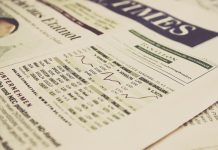
Southeast Asian economies may not recover fast even if they had been more successful in managing the coronavirus pandemic, according to an economist.
“Generally for the region ... it’s somewhat of a U-shape recovery at best, I would say, because it’s still full of uncertainty and I think the risks are still tilted to the downside,” Euben Paracuelles, Nomura’s chief Asean economist, said during an interview on CNBC’s “Street Signs Asia.” He said that global uncertainties would limit the extent of the recovery of Southeast Asian economies.
A U-shape recovery happens when an economy remains at the bottom of a recession for a long time before it progressively recovers.
He pointed out that even if Thailand seems to successfully curb the spread of the virus, its economy would still suffer “a major drag” from the decline in tourism. The impact of the Covid-19 pandemic on tourism may persist until border controls are relaxed or a coronavirus vaccine becomes available as it would allow people to travel again.
According to infectious disease experts, it is not safe for children to return to school where the virus is spreading uncontrollably. Several Many large school districts have chosen to start the fall school year online.
The United Nations Conference on Trade and Development released a report last month which named Thailand as one of the countries that may struggle to recover from the biggest economic hit from the slump of tourism. However, the most optimistic scenario according to the report is that Thailand would lose 9%, or around $47.7 billion, of gross domestic product.
Before the outbreak, “the single main economic engine of Thailand was really tourism and related sectors,” noted Paracuelles. “You take that away, there’s really not much that’s going to boost the economy.”
Singapore
Meanwhile, Singapore has loosened partial lockdown policies for over a month but a new surge of coronavirus cases worldwide could affect overseas demand for the country’s goods and services, according to the economist.
The Singapore economy relies heavily on external demand due to its small domestic market.
Indonesia and the Philippines, the two most populous countries in Southeast Asia, still find it hard to manage the spread of the infections locally.
Both economies have been hurt. Indonesia on Wednesday announced its first economic contraction in more than two decades after its second-quarter GDP fell by 5.3% from a year ago, while the Philippines recorded a 16.5% year-on-year contraction, its deepest on record to date.
The Philippines also reimposed new lockdown measures on capital city Manila and nearby provinces, a decision that could further slow down economic activity, according to Paracuelles.
The economist pointed out that both governments must urgently act on their respective economies.
He added that the Philippine government has not spent as much as some countries in the region in improving the economy.
“If it doesn’t happen quite urgently, I’m afraid it’s going to lead to even more concerns, the business uncertainty will remain high and therefore hampering any recovery,” he said.






